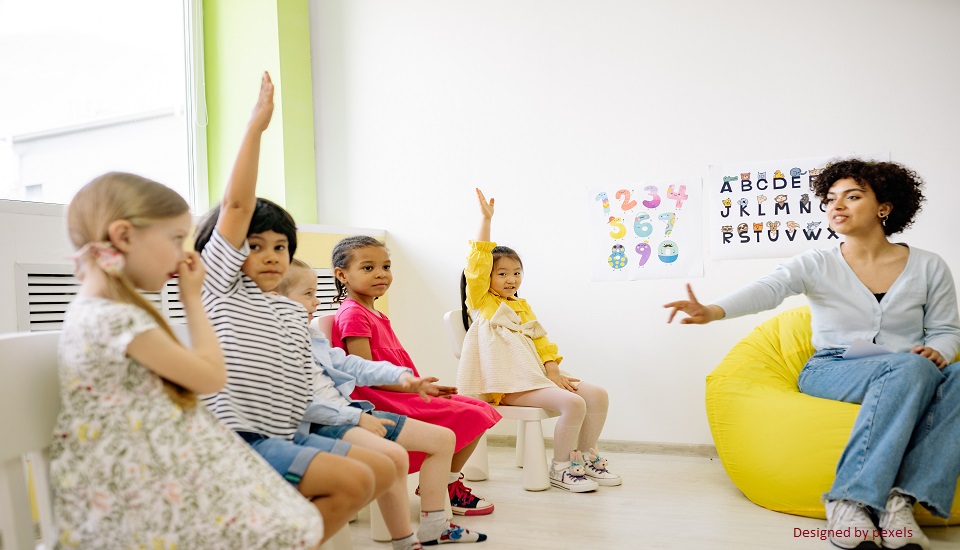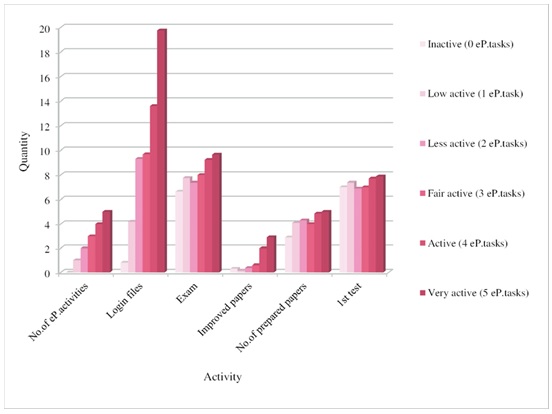5 Effective Techniques To Teach Self-Discipline Skills To Students
17th November 2022

No child wants to hear how to behave 24/7. Not only is it exhausting, but sometimes it might also lead to resentment and rebellious behavior. Teaching children self-discipline is the best way to raise them to observe healthy habits and make responsible choices. However, most teachers confuse self-discipline with obedience and hence, struggle to teach life skills.
Montessori teachers aim at imparting in students the quality of responding unconditionally and exercising control not because they are prompted to do so, but because they find happiness in it. You as a Montessori teacher must act accordingly to facilitate the child's developmental ability. If you are asking yourself how to teach self-discipline in a classroom, here are a few ways to help you.
What Is Self-Discipline?
Before we get into the strategies to develop self-discipline in a kid, let us first understand what exactly the term means. In layman's terms, self-discipline is the capability to control one's feelings and overcome temptations. A self-disciplined child will complete the given task without the need for anybody to watch over them. They behave in such a way because they believe it is the right thing to do.
Self-discipline allows kids to resist unhealthy temptations, delay gratification, and tolerate discomfort to reach their long-term goals. Self-discipline is crucial to help these young minds become responsible adults.
Why Teach Self-Discipline To Kids?
In today's world where kids get easily swayed by their peers and are influenced to make irrational decisions to appear cool, a sense of self-discipline is extremely essential. Self-discipline is not imposing your opinions on them but is more of a tactic to help them manage their anger, stay accountable and cope with discomforting situations.

Source: researchgate.net
If you are wondering why a Montessori curriculum needs self-discipline, here are a few reasons:
- Self-discipline is known to improve concentration among kids. With proper diet, exercise and sleep, self-discipline will have a positive impact on their focusing power and help them perform better in academics.
- Self-discipline enables a child to establish a disciplined routine. It guides the child to divide their entire day based on priorities and explore and unveil their capabilities and hidden talents.
- It teaches the child time management which is a critical skill in today's fast-paced life. With self-discipline, children can manage their time efficiently and accomplish their tasks.
- Kids with self-discipline are more likely to lead a balanced lifestyle as they can separate work and leisure. With kids being efficiently able to plan their schedules it ensures their overall development.
5 Ways To Teach Self-Discipline
Here are 5 techniques by which you can teach self-discipline to your students:
1. Offer A Clear Structure
While enforcing self-discipline, your kids need to understand exactly what is going on. Thus offer clear guidelines and create a schedule that they are supposed to follow every day. Explain what they are supposed to be doing and establish a routine so that they don’t get easily derailed by temptations.
Keep the routine simple like letting them know when it's time to study, take a break, eat, play, etc. a consistent routine will help them settle down faster and they will learn to implement this routine without your help.
2. Create A Rewarding Environment
Self-discipline is directly proportional to self-control and hence this concept should be taught early on. While teaching self-discipline to your kids creates a rewarding setting that gives them the idea that self-control reaps better benefits. For example, as a Montessori teacher, you can give your preschoolers an option to eat one treat now and 2 treats at the end of the session.
Doing this will enable your children to understand that the later pleasure is greater than the current one. Kids who demonstrate the greatest capacity to wait performed better in academics and are less likely to develop substance abuse problems.
3. Model Self-Discipline
Kids are natural imitators and hence they learn the best from watching adults. If you as a teacher are procrastinating and are unsure about your decisions, your kids will learn the same thing. Hence, make it a priority to model self-discipline.
Thus, before walking into a classroom pay close attention to your struggling areas. Take note of the factors that might affect your behavior or discipline. Work on those areas and make it clear to your classroom that you are working on getting better.
4. Impart Problem-Solving Skills
Problem-solving skills are another life skill that every student must learn. While teaching self-discipline work on issues related to this and ask your children what can be done differently. Ask your children what are their struggles before coming to class.
The student who finds it challenging to get ready on time might find it helpful if their outfit is picked the previous night. Similarly, if someone finds it challenging to wake up early, setting a timer might help. The problems of students might be simple or complex. Depending on the situation work with them to help them lead a more disciplined lifestyle.
5. Be Consistent
Consistency is the key and no skill can be learned overnight. In the initial days, students might find it tricky to follow the schedule as there might be things that just slip their minds. Hence, encourage them to keep trying and let them know it's okay to make mistakes.
Praise them for their good behavior and make them learn through positive affirmations. Avoid harsh discipline methods as this might lead to embarrassment and humiliation. Point out what could they have done better and how self-discipline will help them avoid negative consequences.
The Bottom Line
Self-discipline should be a personal choice and it encompasses various aspects, like self-awareness, motivation, self-control, etc. While building these characteristics might not be easy, you can consider pursuing Montessori Teacher Training Courses in Malaysia to read your classroom better. Discipline is all about making them responsible; hence work with the children to make them better adults.
Leave a comment!
Written By : Sanjana





